August 2017 National eResearch Newsletter
Welcome to the August AeRO eResearch Newsletter
From the AeRO CEO
National e-Infrastructure Review Workshop.
Help shape the future of infrastructure for eResearch – register now for this free event!
To provide input into the future eResearch environment, in partnership with RDS, Nectar and ANDS, we’re bringing together research infrastructure providers and representatives across diverse research communities. These providers include the state eResearch partnerships, the publicly funded research agencies, the national/peak service providers, commercial providers, and tertiary institutions as major providers and investors.
To read more (and register) – please go to http://aero.edu.au/nirw/
Dr Markus Buchhorn, AeRO CEO.
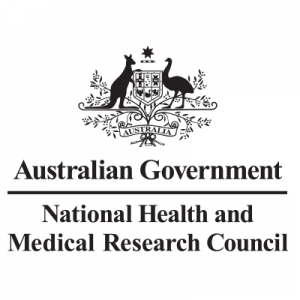 |
Webinar on NHMRC’s New Grant Program 18-Aug-17
NHMRC CEO Anne Kelso AO will be discussing the NHMRC’s new grant program at a special webinar on 18 August hosted by the Australian National Data Service (ANDS). It is aimed at researchers who are NHMRC funded (or intend to seek funding in future), medical research institutes and others with an interest in NHRMC funding. It will include discussion about the improvements NHMRC is making to its grant funding program, as well as a Q&A with Professor Kelso.
See https://register.gotowebinar.com/register/8437669106833666562 |
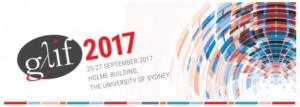 |
Sydney GLIF Meeting Early Bird Closing 23-Aug-17
The 17th Annual Global LambdaGrid Workshop, GLIF 2017, hosted by AARNet, will take place at the University of Sydney from 25 to 27-Sep-17.
This international event brings together networking experts from around the world to collaborate and exchange knowledge on new networking technologies, pathfinding, middleware and applications. The workshop will have a specific focus on how global network architectures are supporting research applications in the Pacific region, in particular astronomy, high-energy physics, and other data intensive science. There will also be demonstrations of high-bandwidth applications.
Early Bird Registration closes 23 August. See https://www.glif.is/meetings/2017/ |
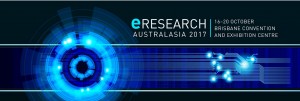 |
eResearch Australasia Conference Program and Deadlines
The Program Committee is excited to report a significant increase in numbers of high-quality submissions made to the Conference this year (Brisbane, 16-20 October). So many good submissions, in fact, that the Program has been squeezed in order to accommodate more presentations, which will provide a rich and rewarding experience for delegates. The full Program will be mounted on the website in the next few days.
Remember that registrations are now open (Early-Bird closes 15-Sep), and that Poster and Lightning Talk submissions may still be made up until 1-Sep.
For more information, see https://conference.eresearch.edu.au/. |
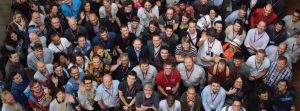 |
Australia and New Zealand Chapter of Research Software Engineers (RSEs)
Expressions of interest are being sought regarding the formation of an ANZ Chapter of Research Software Engineers (RSEs). The term RSE was originally coined by the UK RSE association (http://rse.ac.uk/), in recognition of the growing number of people in academia who combine expertise in programming with an intricate understanding of research. To date there has been no easy way to recognise the contribution of people with such a valuable combination of skills, to reward them, or to represent their views. RSE is seeking to do just that.
|
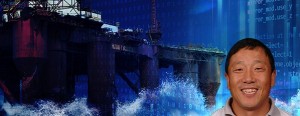 |
Pawsey Fridays – 25 August
Pawsey Fridays are opportunities to get to know users and Pawsey experts in a relaxed and informal setting. Our next gathering will be held at 3pm on August 25 at the Centre.
This Pawsey Friday our special guest is Prof Liang Cheng, from the School of Civil, Environmental, and Mining Engineering at the University of Western Australia, whose team uses the Pawsey Supercomputing Centre infrastructure and expertise to conduct advanced computational fluid dynamics (CFD) simulations and make significant progress in accurately predicting hydrodynamic forces.
For more information, and to register (for catering purposes) go to https://www.pawsey.org.au/event/pawsey-fridays-understanding-the-ocean-to-improve-offshore-designs/. |
 |
Pawsey Roadshows
The Pawsey Supercomputing Centre and the public universities are organising “SUPERcomputing and BIG data for researchers” session as part of their research weeks – UWA on 8-Sep, ECU on 21-Sep, and Curtin on 22-Sep.
This free event will see researchers presenting about their experiences as high-performance computing (HPC) users and how their projects have been impacted by Pawsey services and expertise. Staff from Pawsey will also be presenting information about the organisation and answering questions from researchers who would like to take advantage of HPC and related services.
For more information, visit Pawsey’s September Events page at https://www.pawsey.org.au/events/?date=Sep%202017. |
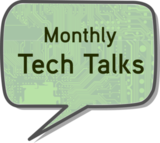 |
Next Tech Talk on Deep Learning 1-Sep-17
The next ANDS distributed Tech Talk is scheduled for Friday, 1-Sep-17 at 3pm AEST (many locations around Australia, via Zoom videoconference). The proposed topic is Deep Learning, with details yet to be finalised.
Keep an eye on http://www.ands.org.au/news-and-events/events/tech-talks for more information. |
| Science Gateways Meeting Montreal, 18-Sep-17
The International Coalition on Science Gateways will hold a meeting at the Research Data Alliance Plenary in Montreal, Canada, on 18-Sep-17. ICSG aims to provide an international forum for the science gateways community, and this meeting will discuss the Coalition’s short and long-term goals. A Science Gateway (or Virtual Research Environment/Virtual Laboratory) is a community-developed set of tools, applications, and data collections that are integrated through a tailored web-based environment.
ICSG works closely with the RDA Interest Group in Virtual Research Environments (VRE-IG).
This is a free meeting; for more information and registration see https://www.rd-alliance.org/international-coalition-science-gateways-meeting-rda-10th-plenary-collocated-event. |
|
| Pawsey National Training
The Pawsey Supercomputing Centre runs National training, offering introductory, intermediate and advanced supercomputing training for all researchers.
In September, Pawsey are running training courses in both Perth and Sydney. Pawsey Training is an opportunity for researchers using Pawsey infrastructure to up-skill in many areas. It is also an opportunity for researchers who are interested in using Supercomputing, Cloud Services, Data Storage or Visualisation to attend and find out what Pawsey has to offer.
To review all Pawsey course descriptions, see https://support.pawsey.org.au/documentation/display/US/Course+Description. |
|
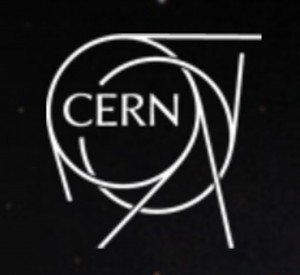 |
AARNet and CERN Sign MoU for Developing Cloud Storage Technologies
The European Organisation for Nuclear Research (CERN) and AARNet have signed a formal agreement which establishes the framework for ongoing collaborations to develop cloud storage technologies for the benefit of scientific and education communities globally. Both organisations share interests in enabling new and more efficient ways of collaborating, particularly over vast distances to support international research endeavours, and will be working together on projects such as developing EOS, CERNBox, SWAN and CloudStor. |
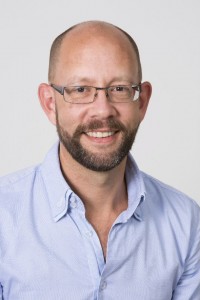 |
QCIF’s Jeff Christiansen joins EMBL-ABR as Open Data Coordinator
For the next 12 months, Jeff Christiansen, Health and Life Sciences Program Manager at QCIF, will work in Pip Griffin’s role as she takes some family leave, a role that is 0.5FTE.
Jeff has worked in roles at ANDS and Intersect and has a lot of experience in, and a strong commitment to, Open Data / Open Science, which he shared with us in an interview in July.
Read Jeff’s interview about Open Science on our website at https://www.embl-abr.org.au/jeff-christiansen-interview/. |
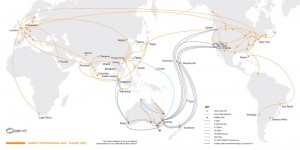 |
Research and Education Networks Join Forces to Tackle Global IT Security Risk
NRENs globally are stepping up their collaborative efforts to help not only each other but also the broader R&E community to secure information and recognise and respond to threats. Over the past two years, NREN leaders have recruited specialist staff to manage security, and regional and global task forces and special interest groups are evolving to address security challenges. AARNet staff tasked with managing security exchange knowledge with their peers worldwide and participate in global NREN security initiatives, including the Global NREN Security Group and WISE.
|
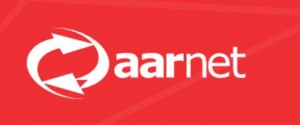 |
Big Data Movement Workshop on Campus
AARNet is seeking expressions of interest from all institutions to run a half- or full-day workshop on campus for skills development in big data transfer techniques. The course will cover tools, methods and architectures for leveraging the significant bandwidth available to the research community. Recommended attendees include all research infrastructure support staff, network engineers and architects, and anyone with growing data volumes (let’s be honest, that’s most of us…).
Interested institutions please contact eresearch@aarnet.edu.au. |
 |
CSIRO Conference on Computational and Data Intensive Science (C3DIS)
The inaugural Conference on Computational and Data Intensive Science was held in Melbourne during July, bringing together 350 scientists, researchers and specialists in computing, data, and information management from across Australia’s publically funded research agencies and service providers, to develop a community of practice around computational and data intensive science.
C3DIS featured three international keynote speakers, >70 invited presentations, and two days of workshops, providing plenty of opportunities for sharing experiences in producing national science impact via large scale computations and data sets.
For information about the conference, see https://wp.csiro.au/c3dis/ |
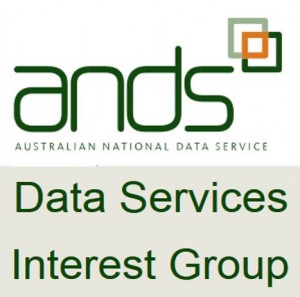 |
Data Services Interest Group Launched
A new Data Services Interest Group has been formed, facilitated by ANDS, to exchange practices, establish visibility of the services, discuss interchangeability issues, and identify opportunities for collective action around data service provision and consumption.
The group members meet virtually once every eight weeks and will have speakers representing data service providers and data service consumers, as well as member discussion of common issues. If you are interested in joining the group, please contact Mingfang Wu (mingfang.wu@ands.org.au) or Julia Martin (julia.martin@ands.org.au).
See http://www.ands.org.au/partners-and-communities/ands-communities/data-services-ig. |
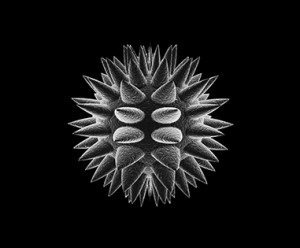 |
New Case Study: Kidney Disease and Post-Partum Health Breakthroughs
In 2016, Australian and European researchers utilized the underpinning AARNet network connectivity to collaborate across continents and make breakthroughs in the understanding of diabetic kidney disease and metabolic changes in pregnancy. The European Molecular Biology Laboratory (EMBL)’s Australia Partner Laboratory at the South Australian Health and Medical Research Institute (SAHMRI) worked with the Diabetic Nephropathy Group, Folkhalsan Research Center, Finland, sharing summarised patient data to investigate molecular risk factors for diabetic kidney disease and its effects on heart disease and life span in Type I diabetics.
See https://www.aarnet.edu.au/case-studies/kidney-disease-and-post-partum-health-breakthroughs. |
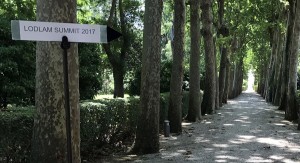 |
What do Fast Networks and Services, Research Infrastructure, and Linked Open Data have in Common?
The answer is Identifiers. And, AARNet is involved in activities in both the eResearch and GLAM (Galleries, Libraries, Archives and Museums) communities that involve connecting identifiers in order to unlock significant opportunities for enabling research collaboration and data sharing across Australia and internationally, and building rich discovery layers to Australia’s cultural data.
|
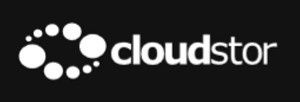 |
New Applications and Updates for CloudStor
Are you a CloudStor user or curious to know more how CloudStor can help improve workflow for your research collaboration? Watch the short CloudStor Roadmap video from Networkshop 2017 and find out what’s new and in the works for CloudStor.
Go to https://news.aarnet.edu.au/new-applications-and-updates-for-cloudstor/. |
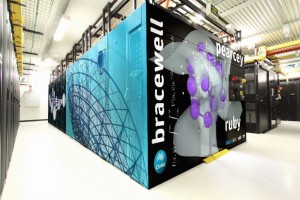 |
CSIRO Announces New Deep Learning Capability
In July CSIRO announced the newest addition to its scientific computing capability, the ‘Bracewell’ GPU-accelerated deep learning cluster, and is a critical enabler for CSIRO science, engineering and innovation; it has replaced the end-of-life Bragg GPU and Phi accelerated system. Live production began in early July 2017.
‘Bracewell’ is named after Ronald N. Bracewell, an Australian astronomer and engineer who worked in the CSIRO Radiophysics Laboratory during World War II, and whose work led to fundamental advances in medical imaging.
For more information contact Angus Macoustra, CSIRO’s Head of Scientific Computing, at angus.macoustra@csiro.au. |
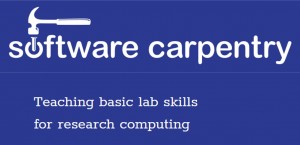 |
QCIF Signs up as a Software Carpentry Member
QCIF has made a formal commitment to the growth and spread of Software and Data Carpentry in Queensland, by becoming a member of the global Software Carpentry Foundation, in order to maximise its benefits for Queensland researchers.
Software Carpentry aims to teach researchers the computing skills they need to get more done in less time and with less pain. Workshops typically cover how to use Python, R, Unix or Git.
QCIF is keen to work with other Foundation members to build a national pool of Software Carpentry instructors.
Read more: https://www.qcif.edu.au/index.php/news/313-qcif-signs-up-as-a-software-carpentry-member. |
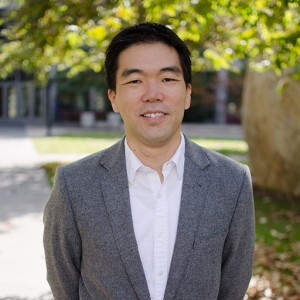 |
Watch the 2017 RCC/MURPA Seminar Series on YouTube
Videos from this year’s Asia-focused Research Computing Centre/MURPA (Monash Undergraduate Research Projects Abroad) seminar series will be available on YouTube.The series focuses on Information Technology in research. Two seminar videos are already available on YouTube – about the applications of the world’s fastest supercomputer in China and Japan’s fastest HPC – with three seminars yet to come.
Future seminars will discuss IT for natural disaster management, and structural bioinformatics strategy in the design of antiviral drugs from natural products.
Read more: https://rcc.uq.edu.au/article/2017/07/asia-focus-rccmurpa-seminar-series-2017. |
Contributions
This newsletter is based on contributions provided by members of the eResearch community, and draws on news articles and newsletters published across the sector. The Newsletter is published around the 16th of each month. Please send any contributions (max. 150 words, plus a link and image) or pointers to any other relevant articles or newsletters to editor@aero.edu.au
Archives of these Newsletters are held at http://aero.edu.au/newsletters/.
Click HERE to add yourself to the eResearch Mailing List.
Thanks,
—AeRO Newsletter Editor

